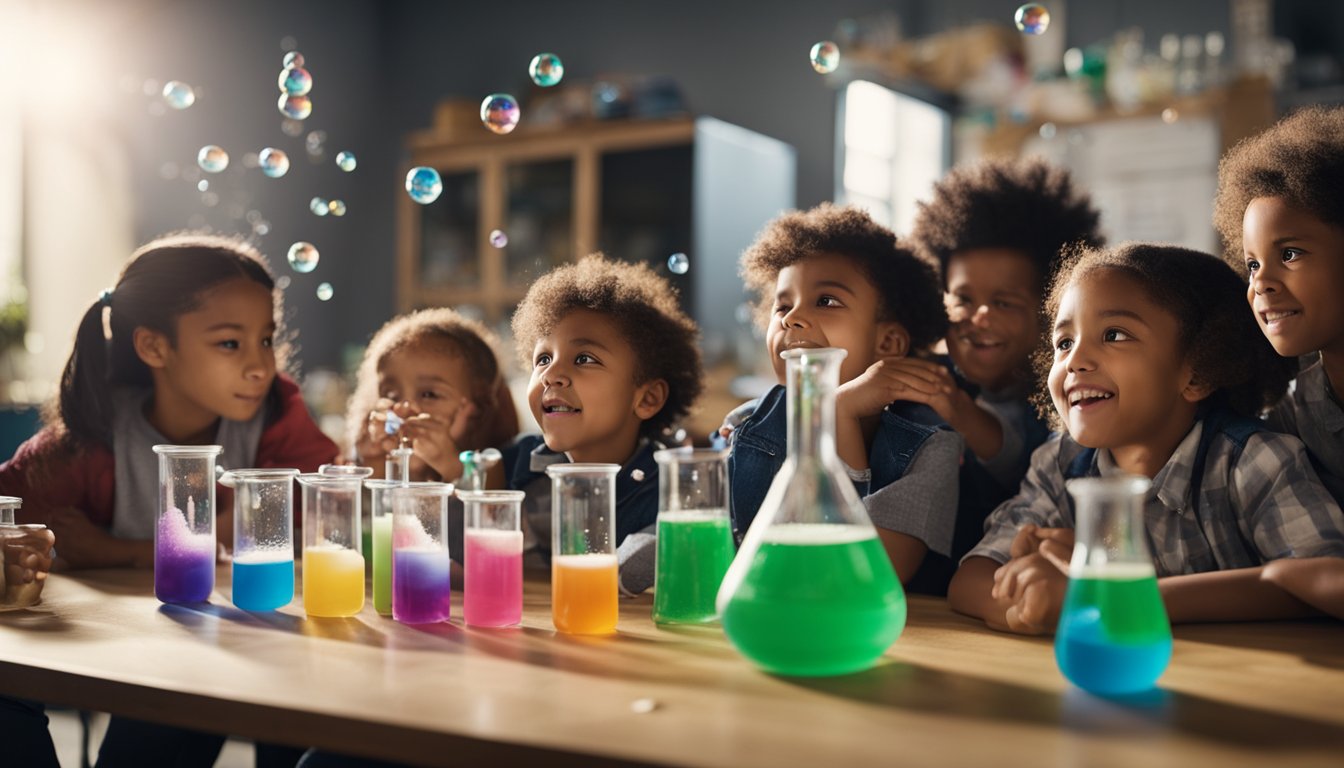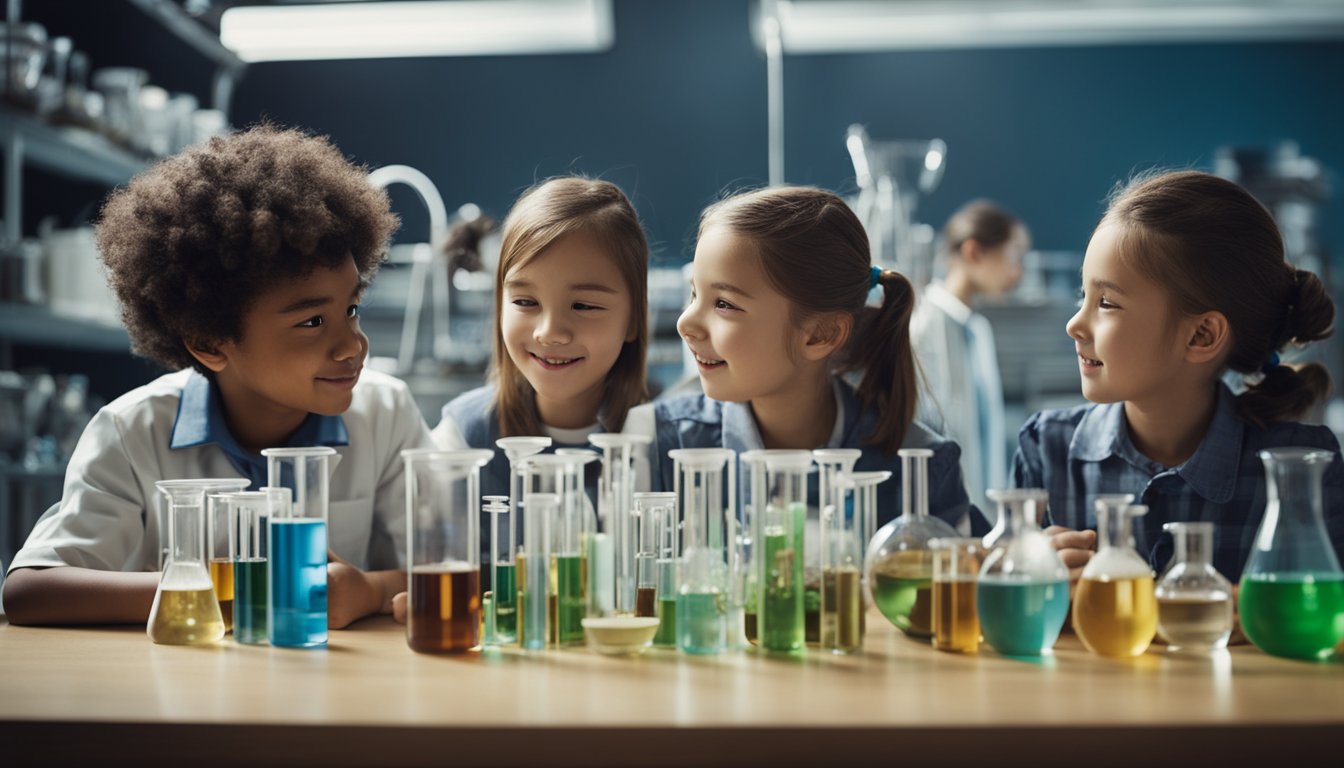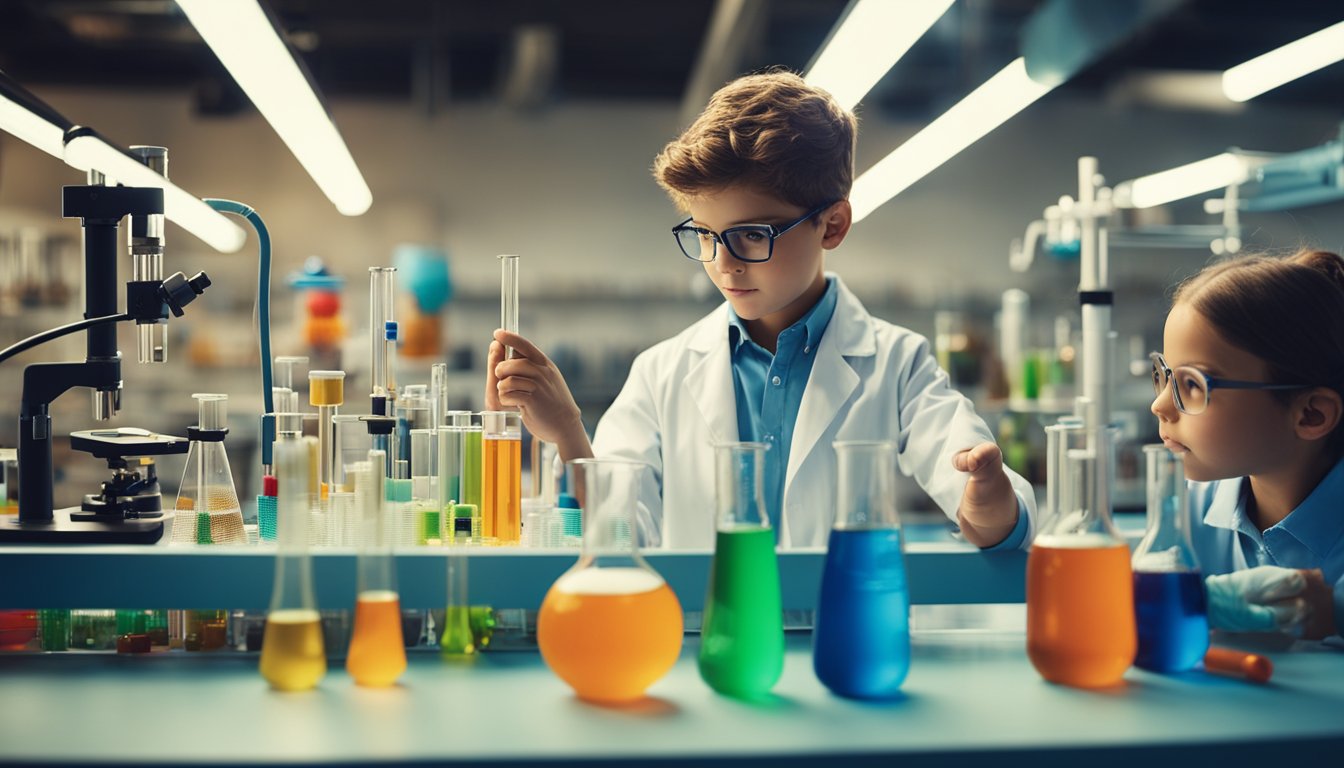Late updated: 03 Feb 2025 13:02
Written by:
Encouraging Children To Love Science Through Experiments: Inspiring Young Minds
Encouraging children to love science through experiments opens doors to curiosity and a lifelong passion for discovery. Science ignites curiosity and allows for exploration, challenging young minds to question the world around them. By incorporating engaging experiments into daily routines, we can foster a love of science that makes learning a fun and dynamic experience.

As parents and educators, we should strive to create environments where scientific inquiry is not just encouraged but celebrated. From building volcano models to experimenting with gravity, hands-on activities provide children with the opportunity to explore various branches of science. This approach helps children see science not as a subject but as a tool for understanding the mysteries of the universe.
Engaging in science experiments at home nurtures natural curiosity and transforms it into a tangible skill. By asking questions and seeking answers together, we can help children develop critical thinking skills that will benefit them beyond their school years. Encouraging this mindset not only promotes a love of learning but also allows children to appreciate the wonders of the world around them.
Key Takeaways
- Experiments make learning science fun and engaging.
- Encouraging inquiry builds curiosity and critical thinking.
- Hands-on activities explore various branches of science.
Laying the Foundations of Scientific Inquiry

In cultivating a love for science among children, it is vital to build a strong foundation for scientific inquiry. This involves sparking interest, developing critical thinking skills, and guiding them through the scientific method.
Sparking Initial Interest
Young minds are naturally curious, making early exposure to science crucial. Through engaging hands-on experiments, such as the popular baking soda and vinegar volcano, we can capture their fascination.
These activities provide a tangible experience with scientific principles and concepts. Using relatable figures like Bill Nye the Science Guy can further kindle interest, as his approach makes complex ideas accessible and fun for children.
Incorporating playful learning helps demystify the world of science and ignites the spark needed for deeper exploration.
Developing Critical Thinking
Critical thinking is central to scientific inquiry. As children observe and interact with their environment through science experiments, they start to develop these essential skills. They learn to ask questions—"Why did this happen?" or "What if I change this?"—which promotes curiosity and analytical thinking.
By introducing basic principles of physics and problem-solving activities, children practise forming hypotheses and drawing conclusions from their observations. Encouraging them to articulate their thought process helps solidify their reasoning ability.
Such skills are crucial not only in science but in their overall cognitive development.
Cultivating the Scientific Method
Nurturing an understanding of the scientific method early on is fundamental for lifelong scientific inquiry.
We guide children through this process by encouraging them to make a hypothesis, conduct experiments, and revise their thinking based on the outcomes. Simple activities like observing plant growth or mixing colours can effectively reinforce these concepts.
These steps—observation, experimentation, and revision—train children to approach challenges methodically. By modelling this approach in teaching science, we lay the groundwork for an inquisitive mindset in young learners.
The scientific method allows them to connect theory with real-world findings, a skill that will remain valuable throughout their education.
Exploring Various Branches of Science

Exploring science branches offers a captivating journey for children. By engaging in diverse scientific fields, we can unlock their passion for learning and creativity.
Chemistry and Reactions
Chemistry introduces young scientists to the world of chemical reactions. Children can observe how elements combine to form new substances, witnessing processes like changes in colour and temperature.
Hands-on experiments, such as creating a vinegar and baking soda volcano, allow children to explore concepts like density and buoyancy. These activities foster curiosity and encourage observation. By experimenting safely, using gloves and goggles where necessary, children can discover the fundamental principles of chemistry. This builds a strong base for future exploration and learning.
Biology and Ecosystems
Biology immerses children in the study of living organisms and ecosystems. Activities such as growing plants help kids understand photosynthesis. We can encourage children to explore local environments, observing plants and animals in their natural habitats.
Creating a miniature ecosystem in a jar, like a terrarium, is a powerful way to visualise how different factors interact. Through these projects, children learn about the balance of ecosystems. This contributes to a lifelong understanding of biology and environmental stewardship. Connecting biology to real-world contexts supports a passion for the natural world.
Physics and Matter
Physics dives into the principles governing matter and energy. By exploring concepts like gravity and motion, children unlock the secrets of the physical world. Simple experiments can make abstract ideas like density or buoyancy tangible.
Using everyday objects, children can witness how forces operate, such as when experimenting with pendulums or building bridges from blocks. This engagement aids in practical understanding. By incorporating technology, like video games and simulations, we can enhance children's grasp of complex topics.
Astronomy and the Universe
Astronomy introduces us to the vastness of the universe. By studying stars, planets, and galaxies, children gain perspective on their place in the cosmos. Activities like stargazing or building simple telescopes encourage them to observe celestial bodies.
Visits to a science museum foster curiosity and a deeper interest in space. Through storytelling, we can explain concepts such as gravity and orbits. By offering insights into the universe's wonders, we inspire children to explore and learn about astronomy. This brings the mysteries of the cosmos closer to their world.
Incorporating Technology
Incorporating technology into science education opens new avenues for exploration. Young scientists can engage with interactive platforms, such as coding games, which teach problem-solving and computational thinking.
By using digital tools, we provide opportunities for creativity and experimentation. Virtual reality experiences can transport children to distant places, allowing them to explore diverse environments. This approach enhances understanding across various science fields. As technology evolves, embracing it in education ensures that children remain curious, passionate, and equipped for future scientific challenges.
Frequently Asked Questions
Supporting children in their exploration of science through experiments can ignite their curiosity and foster learning. It is important for parents, educators, and caregivers to create an environment that encourages scientific thinking and hands-on experimentation.
How can parents and educators inspire a passion for science in children through home experiments?
Parents and educators can offer simple, everyday experiments that teach scientific principles. Activities like observing what sinks or floats during bath time or exploring chemical reactions in the kitchen with safe ingredients can make learning fun and memorable.
What are effective methods for integrating science into early childhood education?
Integrating science into early education can be achieved by incorporating inquiry-based learning. Encouraging children to ask questions and seek answers through observation and experimentation helps develop their critical thinking skills. This approach can be facilitated through both structured activities and spontaneous play opportunities.
Why is it crucial to include science teaching in early childhood development?
Teaching science early on helps children develop problem-solving skills and an understanding of the world around them. Early exposure to science nurtures curiosity and cognitive development, laying the foundation for future learning in all academic areas as they progress through their education.
What are some engaging science activities suitable for young learners?
Engaging activities for young children include simple experiments like creating bubbles, growing plants from seeds, or making slime. These activities not only entertain but also introduce basic scientific concepts such as states of matter and plant biology, encouraging hands-on exploration and inquiry.
How can educators motivate children to develop an interest in scientific subjects?
Educators can inspire interest by providing diverse learning experiences and connecting science to everyday life. Using stories, interactive games, and multimedia resources alongside traditional experiments keeps the lessons varied and engaging, making science relatable and exciting for children.
What is the role of experimentation in the scientific learning process for children?
Experimentation allows children to test hypotheses and observe outcomes firsthand, fostering a deeper comprehension of scientific concepts. By encouraging children to think critically and discover through trial and observation, we prepare them for more complex scientific thinking and learning in the future.
